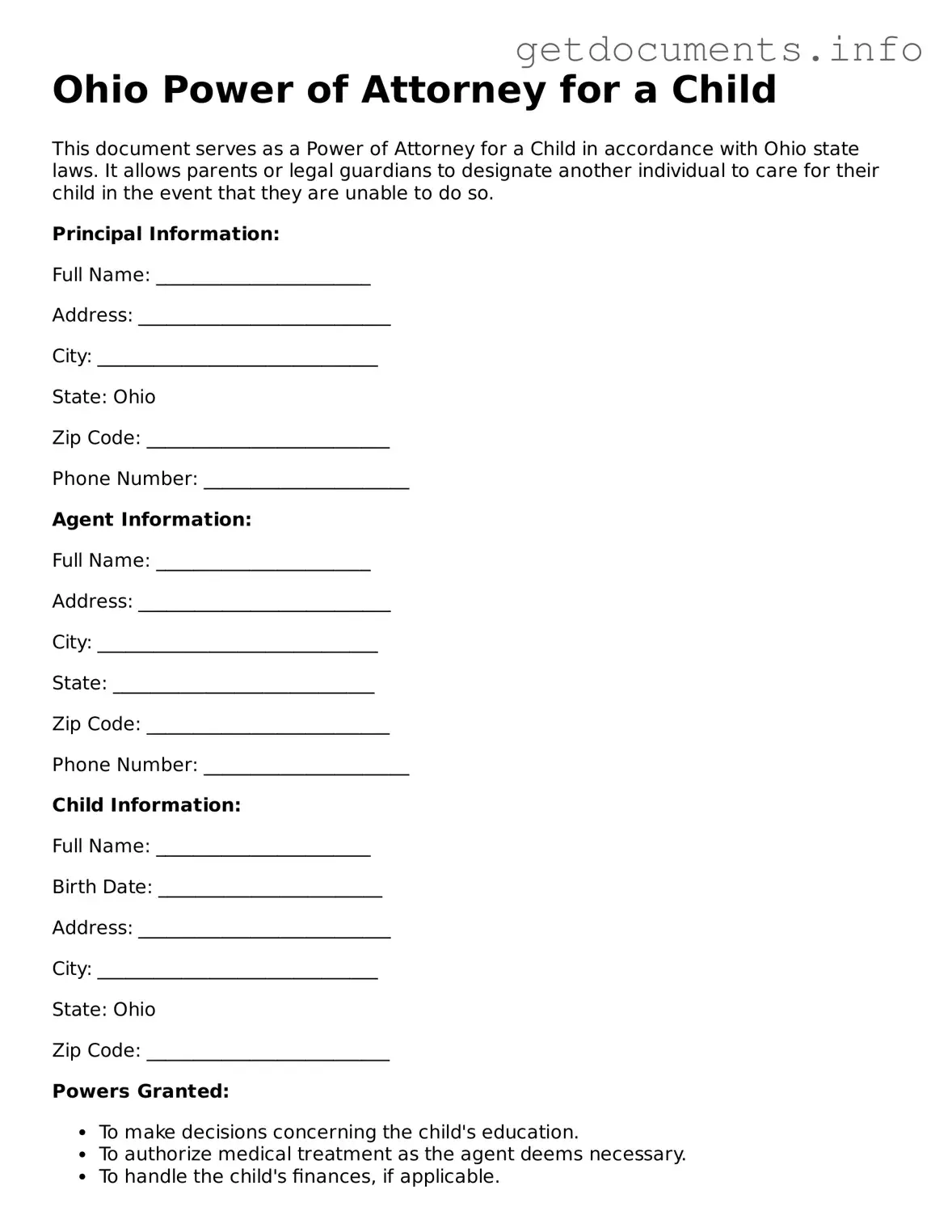Free Power of Attorney for a Child Template for Ohio
The Ohio Power of Attorney for a Child form is a legal document that allows a parent or guardian to designate another individual to make decisions on behalf of their child. This arrangement can be crucial in situations where the primary caregiver is temporarily unavailable, ensuring that the child's needs are met without interruption. Understanding the implications and processes involved in this form is essential for any parent considering this option.
Ready to take the next step? Fill out the form by clicking the button below.
Access Power of Attorney for a Child Editor

Free Power of Attorney for a Child Template for Ohio
Access Power of Attorney for a Child Editor
Got places to be? Complete the form fast
Fill out Power of Attorney for a Child online and avoid printing or scanning.
Access Power of Attorney for a Child Editor
or
⇩ PDF File
